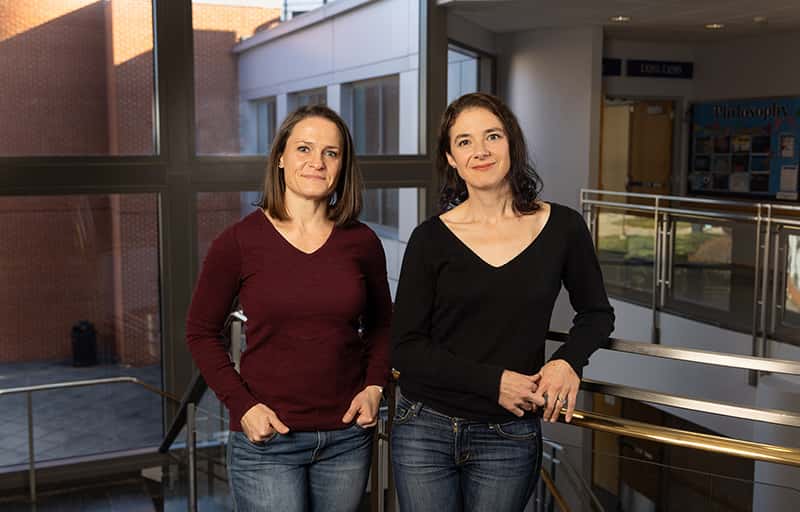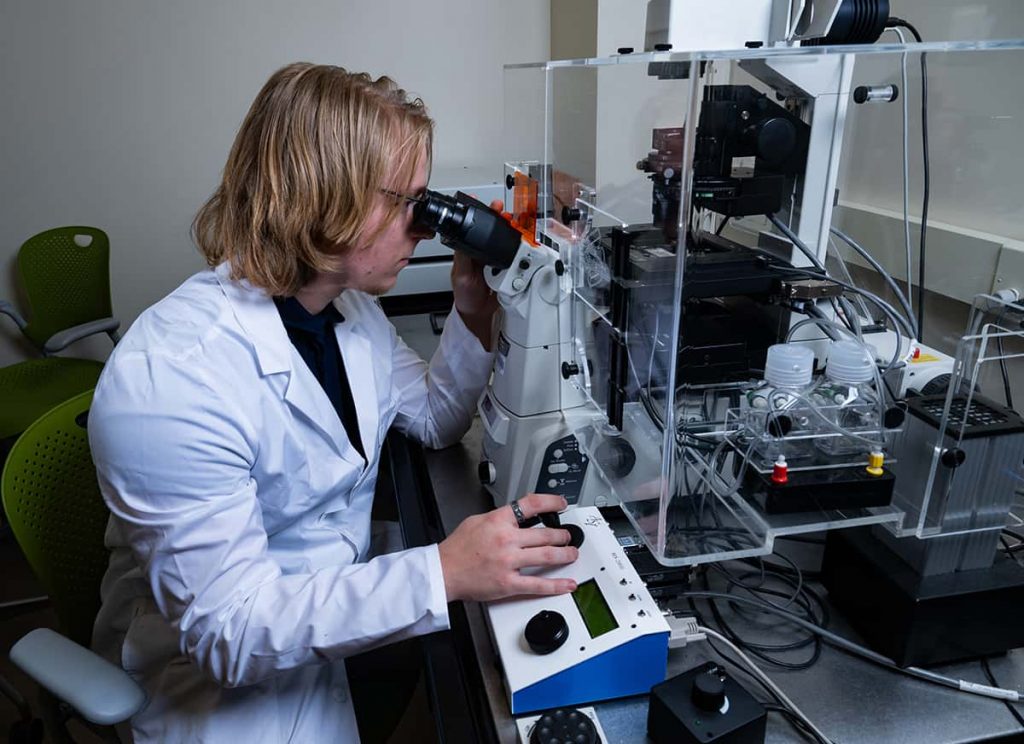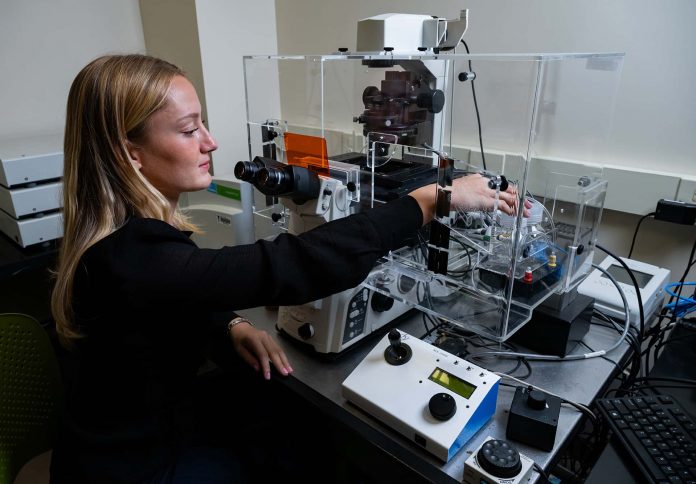Southern Connecticut State University is launching a new Bachelor of Science degree program in behavioral neuroscience for the fall 2025 semester, marking another significant step in the university’s ongoing commitment to providing cutting-edge, interdisciplinary education.
This new program will offer a comprehensive approach to studying the nervous system by integrating insights from biology, psychology, and other sciences, focusing not only on its functions but also on the diseases and disorders that can affect it.
Rachel Jeffrey, program co-founder and assistant professor in the Department of Biology, said the program is a response to a growing demand for a more formalized study of neuroscience.
Jeffrey has been instrumental in the development of the program, which draws from existing courses and faculty but combines them in a new way to offer a cohesive, focused track for students interested in understanding the intricacies of the human brain.
“Neuroscience touches most people in one way or another,” Jeffrey said. “For example, you may have an aunt who suffers from Parkinson’s or a roommate suffering from a mental health illness.”
Psychology Professor and co-founder Kelly Bordner added, “Knowing someone who is affected by mental illness or living with a neurological disorder sparks a deep desire and drive to really understand the fundamental mechanisms underlying the disease.”

The interdisciplinary nature of the program will appeal to students interested in a variety of career paths, from medical and clinical research to biotechnology and pharmaceuticals.
Bordner highlighted how the university’s long-standing commitment to research and specialized courses laid the groundwork for the new program.
“We can give our students the opportunity to learn from faculty mentors, work in labs, and gain hands-on experience, all while studying in a smaller, more personalized environment than they would find at larger universities,” she said.
The B.S. program in behavioral neuroscience will combine courses and faculty from both the Biology and Psychology departments, creating a unique curriculum that emphasizes both biological mechanisms and psychological processes. Students will explore brain anatomy, cognition, psychiatric illnesses, and the effects of experience on brain development.
The program will build on existing courses that already attract students with an interest in neuroscience, such as classes in brain anatomy, where students learn about cranial nerves and engage in hands-on dissections of brain specimens.
“There’s a lot of embedded research in the class,” Jeffrey said. “For example, students will study the brain regions that control movement, like the cerebellum, and design projects to look at anatomy on a genetic and functional level. Students get the chance to choose areas they are passionate about and explore them in greater depth, whether that’s understanding the genetic basis for neurological disorders or examining the neurobiological mechanisms behind behavior.”
Bordner added that the program will be a game-changer for students who are curious, scientifically minded, and eager to understand human behavior at a deeper level.
“This program allows them to appreciate how the brain develops, how psychiatric illnesses emerge, and how our experiences shape the structure and function of the brain,” Bordner said.

The program’s unique features extend beyond academics. In addition to the curriculum, students will be required to engage in primary research, either under faculty mentorship at Southern or through internships in external settings such as biotechnology companies, pharmaceutical firms, and medical institutions. This hands-on research component will allow students to gain practical experience and develop the skills necessary for careers in clinical research, health care, and beyond.
“Research is such an important part of the program,” said Bordner. “They’ll be working closely with faculty in labs and gaining the type of one-on-one mentorship that will prepare them for careers in research, clinical settings, or further education, such as medical school or Ph.D. programs,” she said.
Jeffrey also noted that the B.S. in behavioral neuroscience offers flexibility for students who may want to pursue careers outside traditional academic or medical research.
“We’re giving them the tools to immediately enter the workforce after graduation — whether that’s in clinical research coordination, healthcare professions, or even in areas like medical sales and marketing, where they’ll be using neuroscience to help craft narratives and communicate clinical trial data,” she said.
The new program at Southern is the first of its kind within the Connecticut State University System. Bordner said that the program’s affordability is one of its key strengths.
“This is private education at a public price tag,” she said. “We’re giving our students access to a world-class program, with a unique focus on personalized mentorship and hands-on research experience.”
Southern is now accepting applications for its first cohort of students. For information and to apply, visit the B.S. in Behavioral Neuroscience page.


